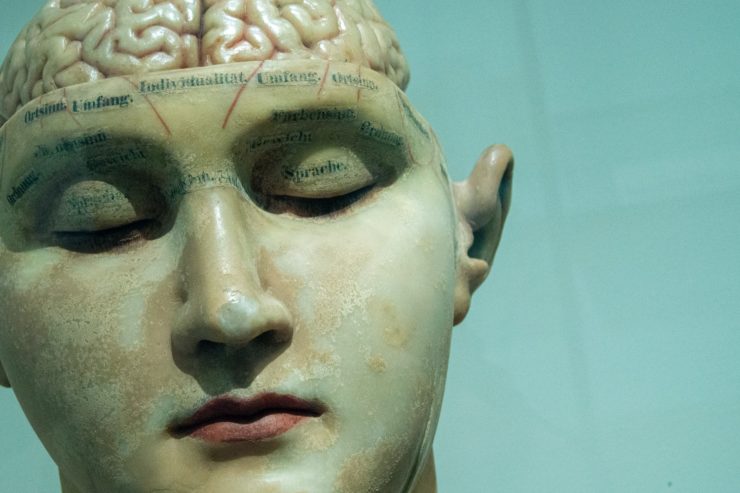Given that many early SFF authors were what are generally known as “nerds,” it’s not terribly surprising that, by and large, intelligent characters are portrayed rather favourably in the genre. Sure, there’s the odd Malign Hypercognition sufferer who proves that not all supersmart folks are white hats, but as a general rule, in SFF smarter is usually seen as better.
There are a few exceptions to this rule (none of them black hats): appealing characters who aren’t necessarily brilliant by conventional standards, but who have other qualities and talents to recommend them. Here are four who star in works that might merit your consideration.
Harvey, movie directed by Harry Koster (1950)
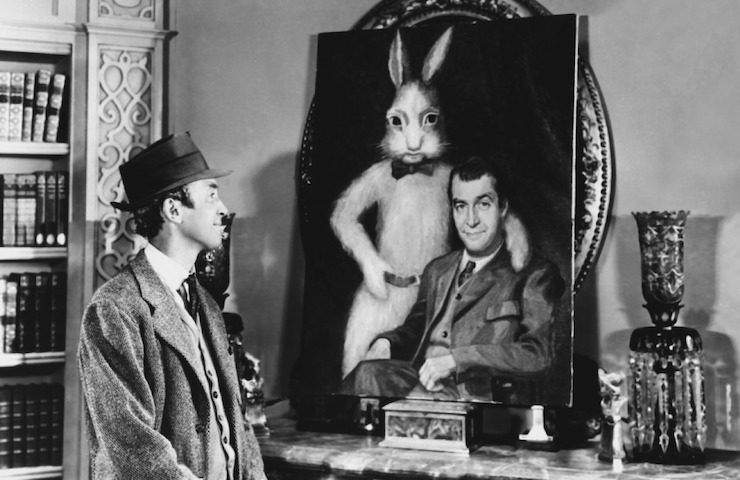
Elwood P. Dowd is charming eccentric, who peregrinates his hometown bars in the company of a six-foot-tall invisible pooka (we are told that Harvey resembles a giant rabbit). Elwood’s friends and family cannot see the pooka, so they must take it on faith.
Elwood doesn’t believe in overthinking. To quote Elwood:
Years ago my mother used to say to me, she’d say, “In this world, Elwood, you must be”—she always called me Elwood—”In this world, Elwood, you must be oh so smart or oh so pleasant.” Well, for years I was smart. I recommend pleasant. You may quote me.
One might expect Elwood to be easily outmaneuvered by the cunning folk around him. This turns out not to be the case. Of course, it helps that Harvey the Pooka appears to be as real as Elwood believes he is.
Tunnel in the Sky, novel by Robert Heinlein (1955)
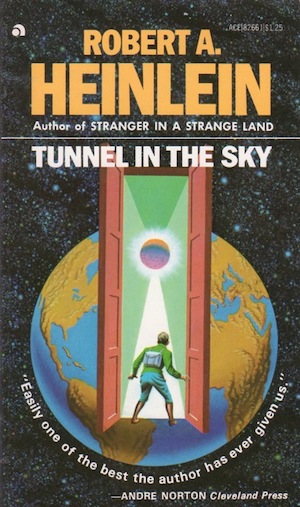
Protagonist Rod Walker ends up taking on a leadership role after he and his fellow survival students are marooned on an alien world, but that seems to be more because he’s a nice guy than because he’s the smartest guy in the group. About the first thing we learn about Rod Walker is that he is both naïve and unobservant (doesn’t notice that his father is gravely ill; nearly flunks his survival course when he tries to plan for everything).
When he discovers his older sister is romantically involved with his teacher, his reaction is:
Rod did so, remembered to shake hands with the Deacon. It was all right, he guessed, but—well, how old were they? Sis must be thirtyish and the Deacon… why the Deacon was old—probably past forty. It did not seem quite decent.
But he did his best to make them feel that he approved. After he thought it over he decided that if two people, with their lives behind them, wanted company in their old age, why, it was probably a good thing.
Rod is the kind of guy who can wrestle with a woman without ever noticing that she is a woman.
That said, Rod does have two rare and marvelous skills which compensate for being somewhat less than brilliant: he is willing to ask for advice and even more unusually, he’s willing to heed it.
The Serpent, novel by Jane Gaskell (1963)
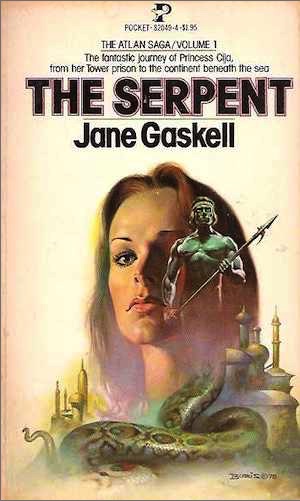
This is the first novel in Jane Gaskell’s Atlan series. Cija, its hapless protagonist, is raised in isolation and not only ill-educated, but miseducated. Her mother assures her that males are extinct. The same evil mom betroths her to an ambitious warlord. That’s just the first of the many indignities to which poor Cija is subjected.
She learns by bitter experience just how dangerous the world in which she lives truly is. One might expect that her decision-making skills would improve. They do not. Despite ample evidence that the world is filled with predatory men whose interest in Cija is never to her advantage, she keeps trusting men. However, she does have a skill that compensates for her poor judgment, which is an impressive ability to survive misadventure after misadventure.
Ringworld, novel by Larry Niven (1970)
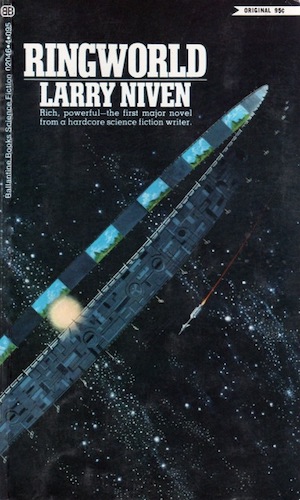
Teela Brown is one of four explorers chosen to explore the eponymous Ringworld. Her companions, alien and human, bring experience, martial prowess, and technological resources to the mission. Teela, on the other hand, is inexperienced and curiously ignorant. A cynic might speculate that she is brought along only because she is very attractive and has rather conveniently fallen for the much older Louis Wu.
Wu did not select Teela. The alien Puppeteer Nessus did. He believes that Teela is the successful product of a breeding experiment to produce an extraordinarily lucky human. The events of the novel suggest that Nessus might be right.
What Nessus should have considered is whether what’s lucky for Teela is necessary lucky for those around her….
***
No doubt you have your own favourite examples of sympathetic characters who may not always be the smartest people in the room, but still find ways to survive and even triumph. Comments are below.
In the words of Wikipedia editor TexasAndroid, prolific book reviewer and perennial Darwin Award nominee James Davis Nicoll is of “questionable notability.” His work has appeared in Publishers Weekly and Romantic Times as well as on his own websites, James Nicoll Reviews and the 2022 Aurora Award finalist Young People Read Old SFF (where he is assisted by editor Karen Lofstrom and web person Adrienne L. Travis). He is a four-time finalist for the Best Fan Writer Hugo Award, is eligible to be nominated again this year, and is surprisingly flammable.










